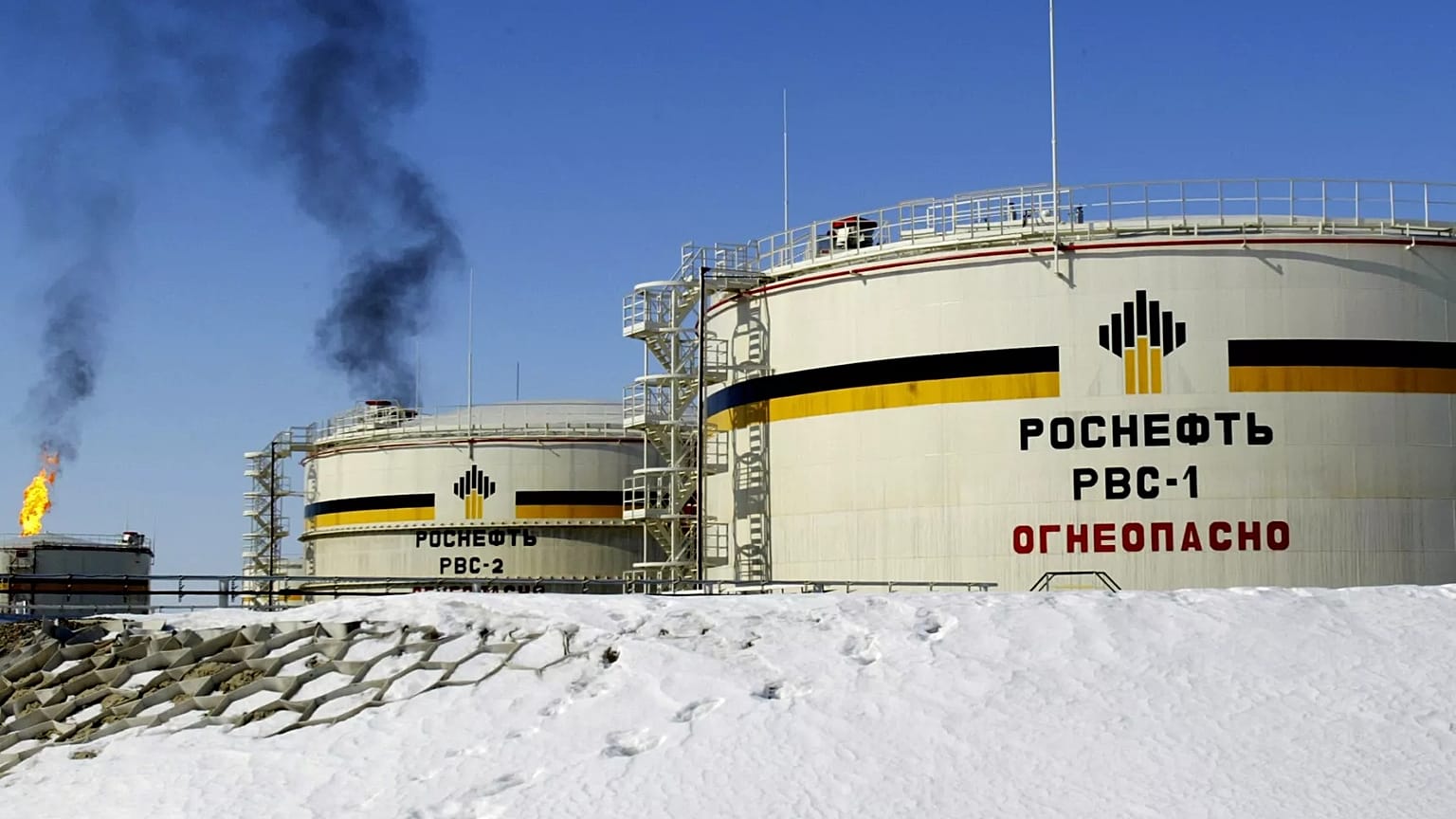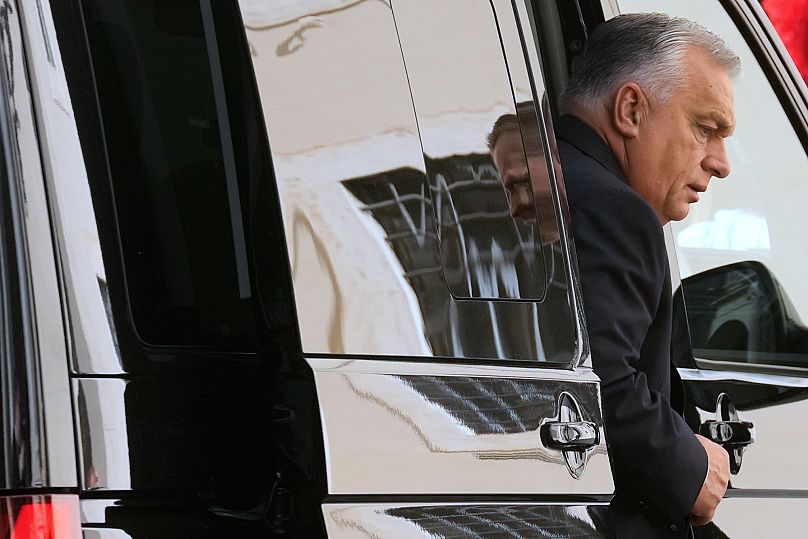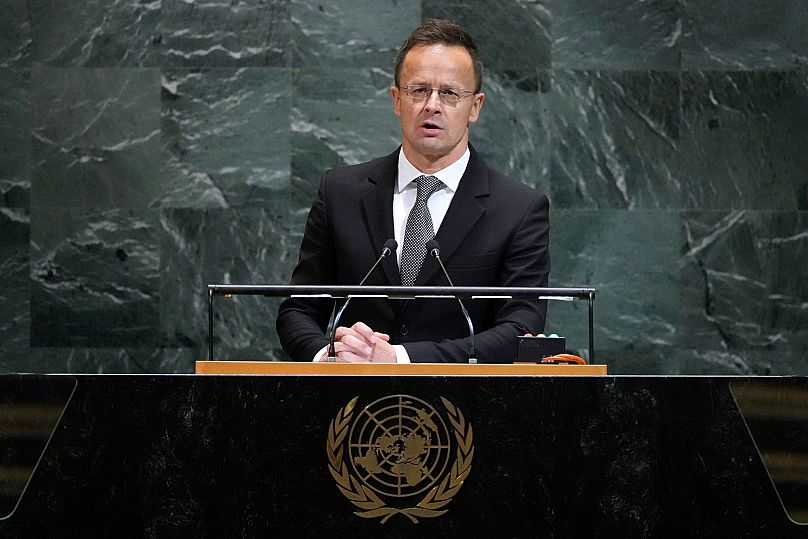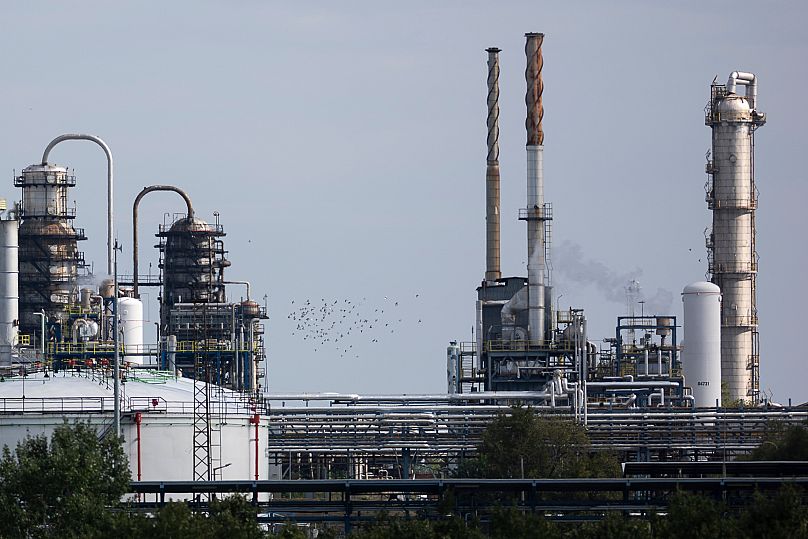Orbán said he will visit Trump next week to discuss Russian oil imports to Hungary after the US imposed sweeping sanctions. When asked if Trump's tariffs on Russian oil went too far, Orbán said yes.
Hungary's Prime Minister Viktor Orbán said he will discuss new US sanctions on Russian oil with President Trump in Washington next week.
The US slapped sanctions on Russia's two largest oil companies, Rosneft and Lukoil, last week, with the former also being blacklisted by the EU.
"We are discussing how to build a sustainable system for my country's economy, because Hungary is heavily dependent on Russian oil and gas. Without them, energy prices will skyrocket, causing shortages in our supplies," Orbán told the Italian newspaper La Repubblica during a visit to Rome.
When asked if Trump went too far and had made a mistake by targeting Russia's energy sector, Orbán said that he had gone too far, adding that Hungary will find a "way out" from the sanctions.
Landlocked Hungary imports most of its fossil fuels from Russia, despite repeated calls from the United States and the European Union to end its dependency on energy from Moscow, an issue which has become a point of tension.
The impact of US sanctions
Hungarian Foreign Minister Péter Szijjártó said the government is examining the possible impact of the sanctions, which the US says will stay in place until Russian President Vladimir Putin shows a genuine willingness to negotiate a ceasefire in Ukraine.
"As for the American sanctions, since their entry into force is still some way off, these measures have not yet caused any loss or difficulties in terms of our energy imports from Russia," Szijjártó said at a press conference in Budapest on Monday.
Separately, the European Commission said the US sanctions do not pose any immediate danger for the security of supplies into Europe, as member states are required to hold oil reserves for 90 days.
"Last week's decision obviously might have an impact and we want to make sure that our member states are prepared, that they have a plan and we are here to support them with this," Anna-Kaisa Itkonen, European Commission spokesperson, told journalists.
Pressure mounts on Slovakia and Hungary
Since the start of Russia's full-scale invasion of Ukraine in 2022, the EU has made several attempts to cut its energy dependency on Russia.
In 2022, the bloc banned the purchase of Russian pipeline oil, with Hungary and Slovakia receiving exemptions. However, while there is no ban on Russian pipeline gas, the EU plans to phase out all fuel imports by the end of 2027 in the bloc.
Max Whitaker, US Ambassador to NATO, talking to Fox News on Sunday, criticised Hungary for not doing enough to end dependency.
Last week the US opted to sanction the Russian energy sector for the first time since the war in Ukraine started.
"Hungary, unlike many of its neighbours, has not made any plans and has not taken any active steps. We are going to work with their neighbours, like Croatia and other countries, that can help them to wind them off. And that pipeline will most likely shut off in the coming years," Whitaker said, referring to the Druzhba oil pipeline.
Slovakia will have to present a plan to decouple from Russian energy too, he added.
According to the Centre for the Study of Democracy, Hungary further increased its energy dependency since the start of the full-scale invasion.
In 2022, 61% of Hungary's crude oil needs were imported from Russia. This year so far, it has risen to 92%, while Slovakia depends almost entirely on Russia for oil imports.


















